Search Images
Browse Content (p. 1100)
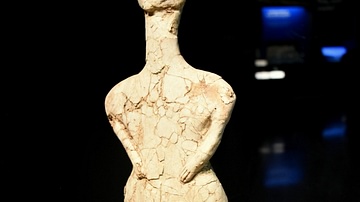
Image
Human Statue from Ain Ghazal
This statue was made of lime plaster, reed, and bitumen and was found in modern-day Ain Ghazal city in the outskirt of Amman, Jordan Hashemite Kingdom. Between 1983-1985 CE, 15 statues and 15 busts made of lime plaster and reed were found...
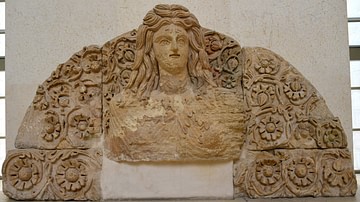
Image
Nabataean Relief Sculpture of Atargatis
Stone sculpture of Atargatis (Ataratheh), the Syrian goddess of fertility in Classical antiquity, from the entrance of a Nabataean temple in modern-day southern Jordan. The Kingdom of Nabatea became prosperous and wealthy through trade with...
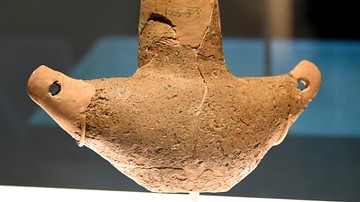
Image
Model of a Churn
Miniature model of a churn that is still used in some Bedouin and rural communities today. Usually made of goatskin, churns like this are hung with ropes and transform yogurt into butter when shaken continuously. They are one of this region's...
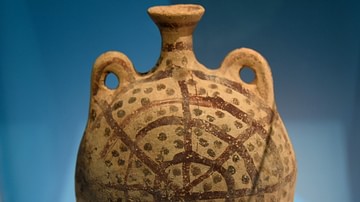
Image
Pilgrim Flask from Amman
Ancient pottery pilgrim flask from modern-day Amman, Jordan Hashemite Kingdom, c. 1200-1000 BCE.
The Jordan Museum, Amman.
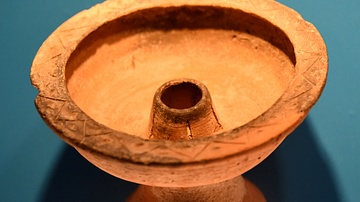
Image
Byzantine Lamp from Madaba
This is a pottery lamp dates to the Byzantine Period, 400-600 CE. From modern-day Madaba, Jordan Hashemite Kingdom. (The Jordan Museum, Amman, Jordan).
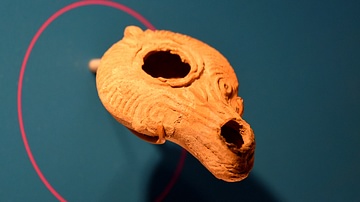
Image
Nabataean Lamp from Wadi Musa
This is a pottery lamp. Nabataean Period, 100 BCE to 500 CE. From modern-day Wadi Musa, Jordan Hashemite Kingdom. (The Jordan Museum, Amman, Jordan).
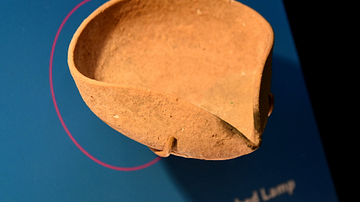
Image
Pinched Lamp from As-Salat
This is an early form of pottery pinched lamps. Circa 2300-2000 BCE. From modern-day As-Salat, Jordan Hashemite Kingdom. (The Jordan Museum, Amman, Jordan).
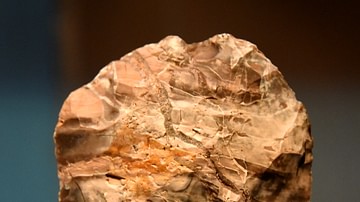
Image
Flint Hand Axe
Paleolithic flint hand axe from modern-day Azraq, Jordan Hashemite Kingdom, 300,000-250,000 years BCE.
The Jordan Museum, Amman, Jordan.
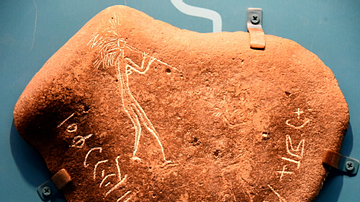
Image
Safaitic Inscription from Jordan
Nomadic people left tens of thousands of inscribed rocks, like this one, across Jordan desserts, written in Safaitic, an Arabian dialect. This rock playfully shows a woman playing the flute. The inscription reads "By Aqraban, son of Kasit...
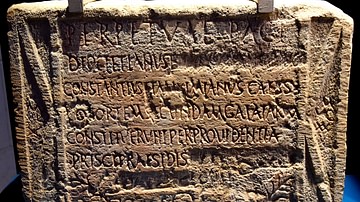
Image
Latin Inscription from Jordan
Latin inscription about an ancient Roman fort and settlement in modern-day Aqaba, southern Jordan, Roman Period, 293-303 CE, discovered in 2013. It weighs about 225 kilograms and was mounted on the fort's main gate, as a tribute to the...